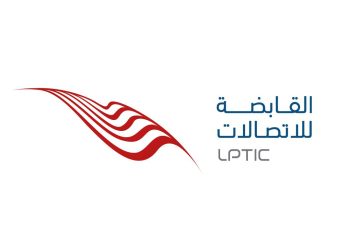By Alaa Murabit.
Zawia, 15 July:
I didn’t wash my finger for 2 days – purposely avoiding the water just . . .[restrict]so that the blue stain I received when voting remained there for as long as possible. To those around the world who have had the right to democracy and the choice of selecting their political representatives it may seem a little unusual.
However, this was an action replicated by the majority of my friends and family because to us, our blue fingers were a sign – the sign – of the success of the Libyan revolution and the potential for a truly democratic transition.
In the months since the fall of Gaddafi and his regime, the international, and even national media have reported on numerous things, covering everything from tribal disputes that are getting out of hand, to the increasing insecurity of the Libyan borders, the proliferation of arms, the lack of a strong central government and on the overall feeling of dissatisfaction within the majority of Libyan society following liberation.
Through work in my own NGO, The Voice of Libyan Women, I have noticed that the once infectious desire to learn, share experiences and, “make Libya a place Libyans can be proud of,” as a young 12 year old student once said to me, is slowly disappearing in the midst of corruption, lawlessness, and a lack of ownership over decisions made ?n a post-revolution Libya.
Since the election, now a l?ttle over one week ago, there have been many debates, discussions, and arguments. “Who did you vote for?” is now the second thing to be said right after “Salam.”
Of course this question is commonly followed by a debate including (but not limited to) the following topics: Moderate Islam vs more “liberal” Islam, the character of the person or party that were voted for, which is strongly related to how much you really know about the “real” nature of the political parties/individual candidates, etc.
I will not get into a debate about what general knowledge the Libyan public had of candidates and political parties before they cast their votes in the historical seventh of July elections.To me, it should be expected and understood that for a population which has not had the opportunity to exercise its democratic rights for decades, people may not be as aware of political platforms, political responsibility, campaigning techniques, and the influence of media as you should expect those in countries in which there are regular elections and an ingrained democratic process.
I also will not get into the misconception that simply because a political party has received X number of votes they will have a majority in the parliament, or that this election has in any way been a litmus test of Libyan society (I only mention this as it has been quite misunderstood by the international community, and sensationalized by overzealous journalists and reporters).
Instead, I would like to emphasize the importance of what comes next. What are our newly elected representatives planning to do in terms of transitional justice, border control, women’s rights, the proliferation of arms, civil society, the inclusion of minorities and most importantly the Libyan Constitution.
What are our expectations for the newly elected national assembly? Will we, as citizens, be included in decisions, and given honest, clear and transparent answers, or again, be faced with corruption? If so, how will we hold our national assembly accountable?
Instead of sitting and debating the legitimacy of our newly elected officials, maybe its time for us, as Libyan citizens, to get ahead of our politicians – to understand our priorities for Libya, and how we expect the constitution to reflect them.
There are many questions in the coming months, and as in every democracy it is the citizens responsibility, above anyone else, to ensure that their opinion is heard. After all, this is a democracy – this is what we fought for.
About the Author: Born in Canada, Alaa Murabit moved to Zawia at the age of 14, and along with her family, was very active during the revolution, as seen in numerous media reports coming from that time.
Following the revolution, Alaa Murab?t founded The Voice of Libyan Women, an NGO focus?ng on the Political participation, economic empowerment and elimination of all forms of violence against women, and the organizers of ‘One Voice’, the first International Women’s Conference in Libya, only weeks after Liberation.
She has spoken at numerous conferences and in parliaments around the world.
[/restrict]




